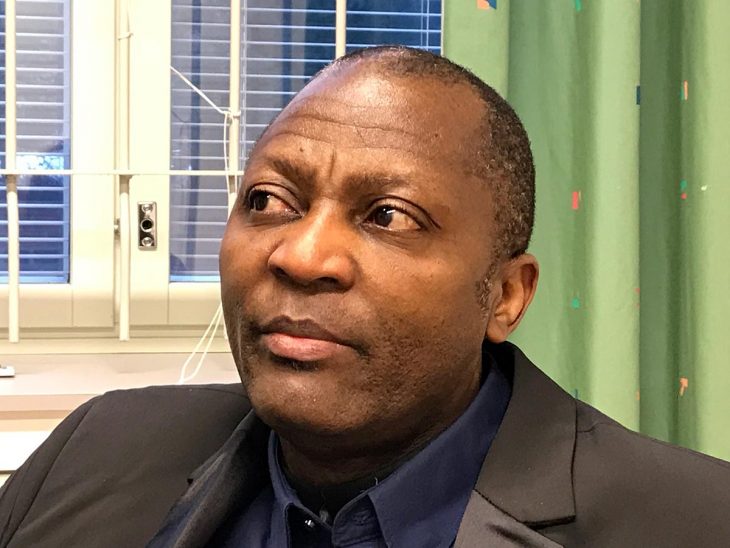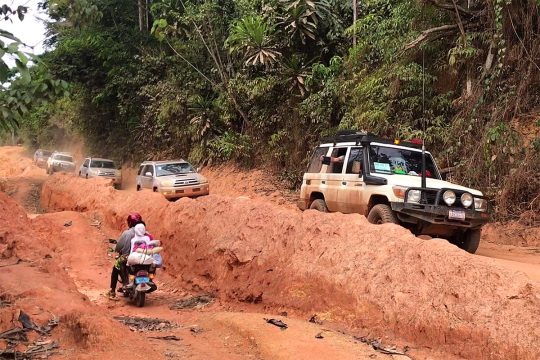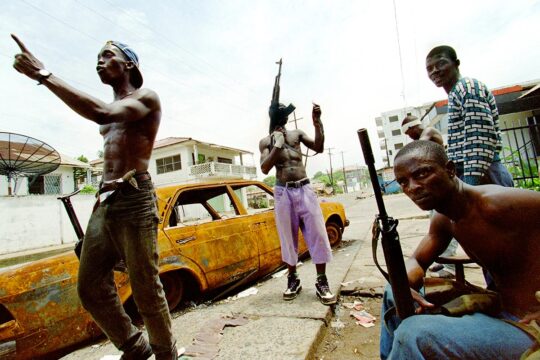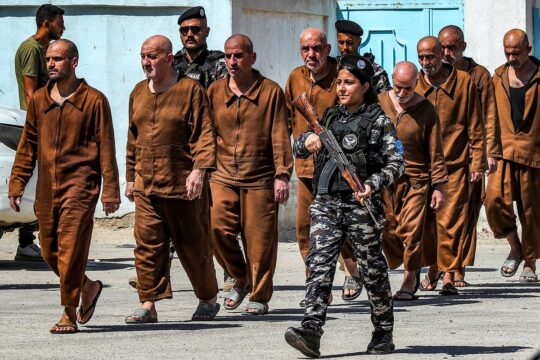For any informed observer, the April 29 ‘not guilty’ verdict by a Finnish court in the trial of Gibril Massaquoi, a Sierra Leonean former Revolutionary United Front (RUF) spokesman who had long taken residence in Finland, was an anticlimax. That’s because the prosecution’s case all but collapsed during the court’s first sittings in Monrovia, Liberia, from February to April last year. I briefly attended one of those sittings, held at a small resort hotel at the outskirts of Monrovia.
One of Massaquoi’s Finnish lawyers had called to ask me whether I could support Massaquoi’s claim to her that I knew he could not have fought in the chaotic battles in Monrovia in 2003 – which grandiloquent Liberian vanity had cast as World Wars 1, 2 and 3 – since I had met him several times during that period at the safe house that the Special Court for Sierra Leone had secured for him as a highly valued witness. I had indeed met Massaquoi there during my research for a book on the war, but my interactions with him had been intermittent. All the same, I decided out of curiosity to observe, however briefly, the trial in Monrovia. One yearns to read the entire verdict, but it is rendered only in Finnish, a language to which I, and almost every Liberian and Sierra Leonean, have no access.
There was, one felt, a purity about this dedication, something exalted and noble: Finland had granted asylum to Massaquoi and was now spending hundreds of thousands of euros to examine allegations made against him by two NGOs
Improbable evidence
The Finns had converted the conference hall of the hotel into a courtroom with four judges, two prosecutors, a defence lawyer, a veteran war crimes investigator, interpreters and court administration officials from the District Court of Pirkanmaa in Tampere, a small city in southern Finland. COVID-19 cases were negligible in Liberia, so the 14 Finns at the court seemed relaxed and unhurried. A few weeks earlier, they had conducted “crime scene” visits in Liberia’s Lofa County. There was, one felt, a purity about this dedication, something exalted and noble: Finland had granted asylum to Massaquoi as part of an extended witness protection scheme and was now spending hundreds of thousands of euros to examine heinous allegations made against him by two non-Finnish NGOs. Yet the whole effort was steeped in bathos.
Witness after prosecution witness provided what appeared to be carefully choreographed testimonies that had no probative value: that were indeed so improbable that anyone with some familiarity of the events would dismiss them out of hand. Absent from the scene was Massaquoi himself, left in detention in Finland and watching the hearings via video link with one of his defence lawyers. Almost all the witnesses were ex-combatants who had been loyal to Charles Taylor, on whom Massaquoi had provided damning information for the Special Court for Sierra Leone. Each one claimed that Massaquoi had played a leadership role during the Monrovia battles of 2003, had been excessively brutal, and had been known as ‘Angel Gabriel’. In fact, Massaquoi had never been referred to as ‘Angel Gabriel’, and it was highly unlikely that he could have sneaked out of his safe house in Freetown where he was already providing vital information on Taylor and his former comrades in the RUF, travel to Liberia, lead a bunch of fighters loyal to Taylor, persecute Taylor’s enemies, and sneak back unnoticed to his safe house in Freetown.
A former Taylor combatant who appeared on 2 April walked with a limp – the result, he said, of getting shot in the leg at Lofa Bridge, some 370 km from Monrovia, in 2003 on the orders of Massaquoi/Angel Gabriel. The witness testified to witnessing massacres in Monrovia only a few weeks later, in June-July 2003, though he was surely seriously injured and even disabled from the attack at Lofa. The witness was not cross-examined on why Massaquoi, who was allegedly fighting in support of Taylor, would have turned his guns against him – a Taylor fighter – except to make a general point about the brutality of the Sierra Leonean forces in Taylor’s command. He said he recognised Angel Gabriel to be non-Liberian because he spoke with a Sierra Leonean accent. Like him, other witnesses testified that Angel Gabriel was so brutal that Taylor’s most notorious enforcers, Benjamin Yeaten and Zigzag Marzah, had to intervene to restrain him. It was the first time ever that anyone suggested that Yeaten and Marzah had been a restraining influence: the records of Liberia’s Truth and Reconciliation Commission and the Special Court for Sierra Leone, not to mention research by human rights organisations and academics, all overwhelmingly cast these characters as demented murderers and merciless enforcers for Taylor.
The ‘not guilty’ verdict would probably have the opposite effect (of that expected by pro-justice activists): one fears that such trials would now be deemed to be an expensive and risky waste of time.
Good intentions defeated by arrogance and ignorance
Clearly, the Finnish investigator, Thomas Elgren, who singlehandedly built this case – a voluminous file running to thousands of pages – had not consulted any expert in Liberia or Sierra Leone. I had a beer with him at the hotel that April, and he seemed loftily unaware that this would have been helpful. He trusted the information he had gathered, doubtless with the help of those who had instigated the case in the first place, from ex-combatants, though the events they described happened nearly 20 years ago. Some of his informants had been child fighters, often drugged, at the time that the events happened.
There was, I felt, something melancholic about what this provincial Finnish court had wrought in West Africa, the pathos of good intentions defeated by a combination of arrogance and ignorance. This has been doubly tragic.
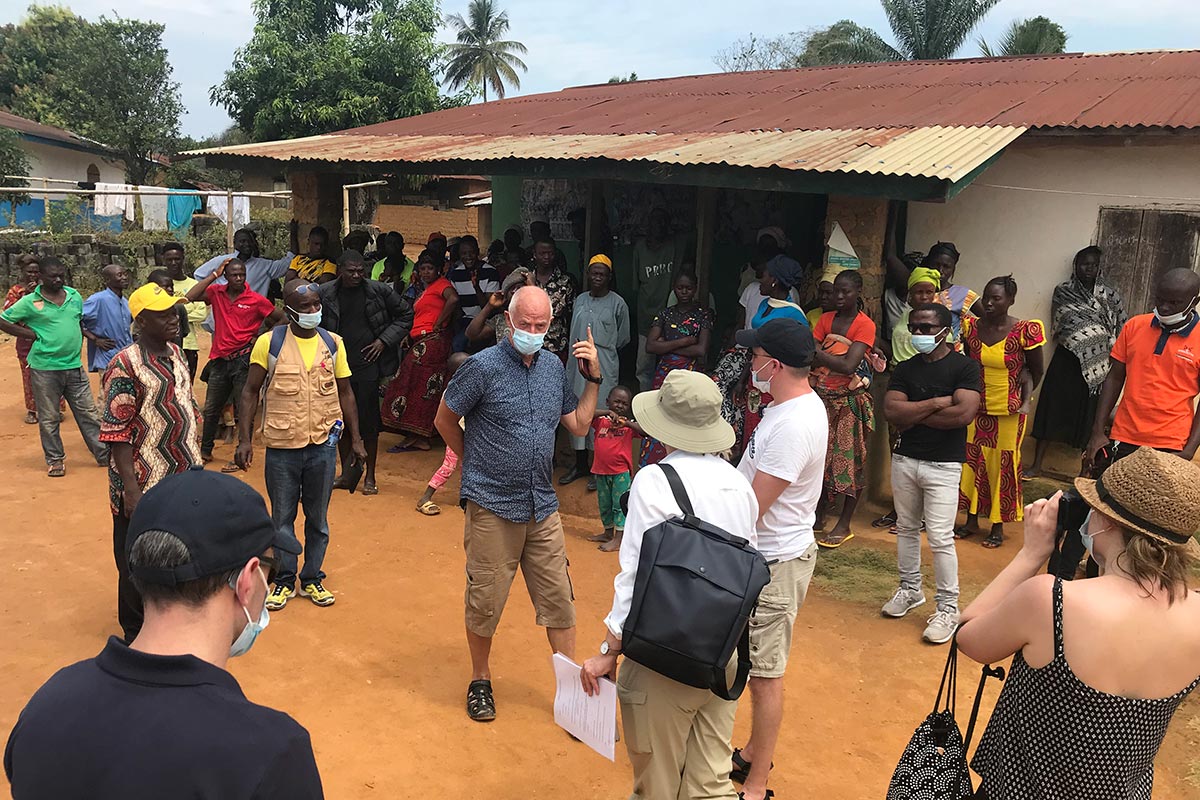
The few Liberian supporters of the Massaquoi trial that I know – transitional justice activists – had hoped that it would give traction to their own quest for criminal prosecutions of perpetrators of atrocities in Liberia’s sanguinary civil wars. No retributive justice mechanism has been initiated in Liberia, in contrast to Sierra Leone. The ‘not guilty’ verdict would probably have the opposite effect: one fears that such trials would now be deemed to be an expensive and risky waste of time. Indeed, Liberian officials who agreed to the court’s sittings in Monrovia long made sure there would be no such collateral effect. Attorney General and Minister of Justice, Frank Musah Dean, probably only agreed to the proposal from the Finns because Massaquoi is Sierra Leonean, not Liberian. Moreover, he rejected a request by the Finns and justice activists for the hearings to be broadcast live. Instead, a large video screen in a room adjacent to the courtroom in the hotel was set up for interested Liberians. But since the venue was outside Monrovia and the location publicly unknown, interest was so low that the room was often empty. That effectively limited the trial’s potential impact on debate in Liberia about wider war crimes prosecutions.
In all of this, one potential collateral effect must be firmly resisted: that the verdict may somewhat be seen as exculpating Massaquoi from the heinous crimes he committed in both Sierra Leone and Liberia
An act of decency
For Liberian victims of the immense atrocities committed during the civil war, the coordinated attempt – as it seemed from the ex-combatant witness testimonies in the Massaquoi trial – to both reduce Liberian guilt of crimes committed during the war by blaming atrocities on the few Sierra Leoneans who partook of that war, must have been traumatising. To reflect that this was perhaps done in order to undermine calls for war crimes trials in Liberia – and possibly to punish Massaquoi for having testified against Taylor – is to compound the harm that this misguided trial may have wrought.
In all of this, one potential collateral effect must be firmly resisted: that the verdict may somewhat be seen as exculpating Massaquoi from the heinous crimes he committed in both Sierra Leone and Liberia before the alleged crimes for which he was charged were committed.
During my interactions with him before his relocation to Finland, Massaquoi sent me via email a very rough draft of a manuscript he claimed was his personal record of the rebel wars in which he played a prominent role. It was unpublishable. Later, after his relocation, he sent me an email saying that he was writing from a ‘Scandinavian country’ and that his manuscript had found a publisher. I requested a copy, but he never responded. I tried but couldn’t find the book for purchase. Going through the voluminous pile of evidence that the Finnish prosecutors put together, I at last was able to find the book, running to around 370 pages. It is poorly written and misleading in many parts, with important facts elided, but it is illuminating all the same. Massaquoi describes numerous atrocities committed by the RUF, including countless rapes and horrid accounts of the lives of ‘bush wives’ – it seems all the rebel leaders were, in his felicitous formulation, ‘womanisers’ – and recreational and revenge or pointless killings. In his account, he himself partook of none of these, of course.
I understand that because of the not guilty verdict, Finland is legally bound to provide Massaquoi compensation for his two-year detention. This could amount to hundreds of thousands of euros. One hopes that he has acquired a rag of decency during all these years of his residence in Finland, including after his arrest and detention, during which time he has been treated with extraordinary generosity and civility. He should demonstrate this by donating that financial compensation to his many victims in Sierra Leone and Liberia. Someone, perhaps his gallant legal defence team, should whisper this into his ears.
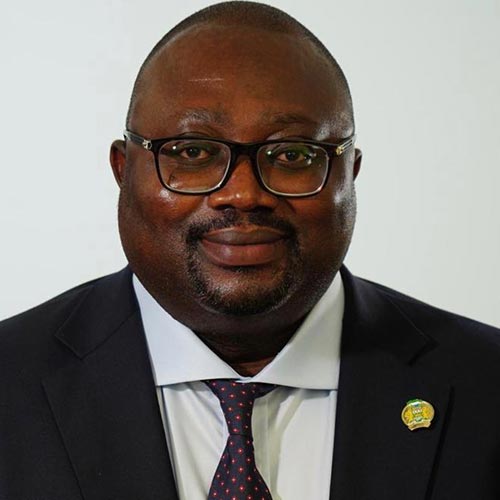
Dr. Lansana Gberie is a Sierra Leonean historian and former journalist, and the author of A Dirty War in West Africa: the RUF and the Destruction of Sierra Leone, Hurst, London, 2005. He is the current ambassador of Sierra Leone to Switzerland and to the United Nations in Geneva, although he writes here in his own name.


